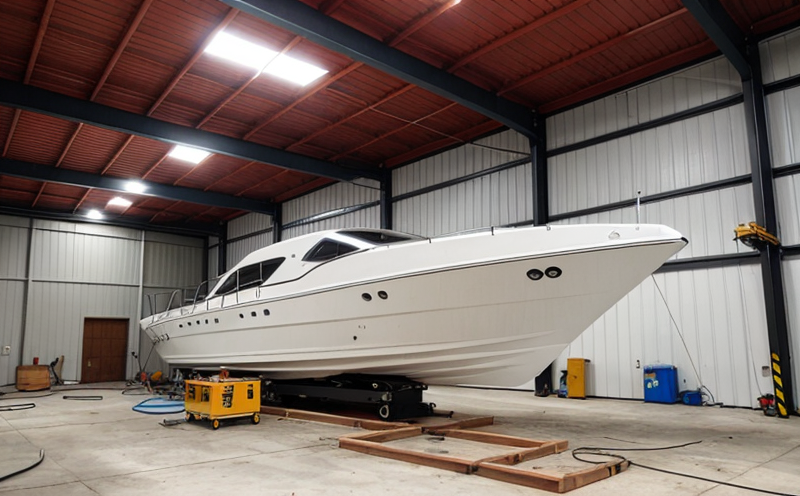ASTM D696 Coefficient of Thermal Expansion for Marine Plastics
The ASTM D696 standard provides a method to measure the coefficient of thermal expansion (CTE) of marine plastics. This test is crucial in ensuring that materials used in ship and marine equipment can withstand extreme environmental conditions without compromising performance or integrity. The CTE measures how much a material expands as it heats up, which directly impacts its mechanical properties under varying temperatures.
The ASTM D696 procedure involves subjecting the specimen to a controlled heating environment while measuring length changes using precision instruments like micrometers or displacement transducers. Understanding the CTE of marine plastics is essential for predicting how these materials will behave in real-world conditions, especially in maritime environments where temperature fluctuations are common.
For this test, specimens are typically cut from the material to be tested and conditioned according to ASTM D695 requirements before being subjected to a linear heating rate. The specimen's length is measured at various points along its axis during both cooling and heating cycles to calculate the coefficient of thermal expansion accurately.
The results of this test provide valuable information for quality managers, compliance officers, R&D engineers, and procurement teams responsible for selecting appropriate materials that meet stringent environmental requirements. By knowing the CTE values of potential marine plastics, these professionals can make informed decisions about material selection to ensure long-lasting performance in harsh marine environments.
Understanding the ASTM D696 test results also helps manufacturers optimize their production processes by identifying any potential issues with thermal stability early on. This knowledge ensures that products not only meet regulatory standards but also perform reliably throughout their lifecycle, reducing maintenance costs and downtime associated with material failures due to incorrect CTE behavior.
Moreover, the ASTM D696 test supports sustainability efforts by providing insights into how different materials respond to temperature changes over time. This information can guide engineers towards selecting more sustainable options that maintain their integrity under various environmental conditions without sacrificing durability or functionality.
Industry Applications
| Application | Description |
|---|---|
| Marine Hulls and Structures | The ASTM D696 test is essential for ensuring that the materials used in constructing marine hulls are capable of withstanding temperature variations without degrading. This ensures safe operation under varying environmental conditions. |
| Marine Equipment Components | For components like thrusters, propellers, and other mechanical parts, understanding CTE helps prevent failures due to thermal stress during operation in marine environments. |
| Insulation Materials | Insulating materials used within ships need accurate CTE data to maintain their insulative properties under fluctuating temperatures. This is critical for energy efficiency and safety standards compliance. |
| Composite Materials | Advanced composites employed in marine structures require precise measurement of thermal expansion coefficients to ensure they perform optimally across a wide temperature range. |
Why Choose This Test
- Predicts material performance under varying temperatures, crucial for long-term reliability in marine environments.
- Ensures compliance with international standards such as ASTM D696 and ISO 178.
- Supports sustainable design practices by selecting materials that maintain integrity over time.
- Aids in optimizing production processes to avoid material failures due to incorrect CTE behavior.
- Provides critical data for quality control during manufacturing, ensuring consistent product performance.
- Serves as a benchmark for comparing different marine plastics and their suitability for specific applications.
Environmental and Sustainability Contributions
The ASTM D696 test plays a vital role in promoting environmental sustainability by helping manufacturers select materials that can withstand extreme temperatures without compromising performance. By ensuring that the chosen marine plastics exhibit consistent CTE values, industries contribute to reducing waste from material failures due to thermal stress.
Understanding the long-term behavior of these materials under changing conditions also encourages the development of more sustainable alternatives. For instance, if a particular plastic exhibits poor CTE properties leading to frequent replacements or repairs, alternative eco-friendly options can be explored and tested using ASTM D696.
This test contributes significantly to minimizing environmental impact by prolonging product lifecycles, reducing resource consumption, and decreasing the frequency of replacements. It supports sustainable practices by informing decisions that enhance both operational efficiency and ecological responsibility across various sectors within the marine industry.





